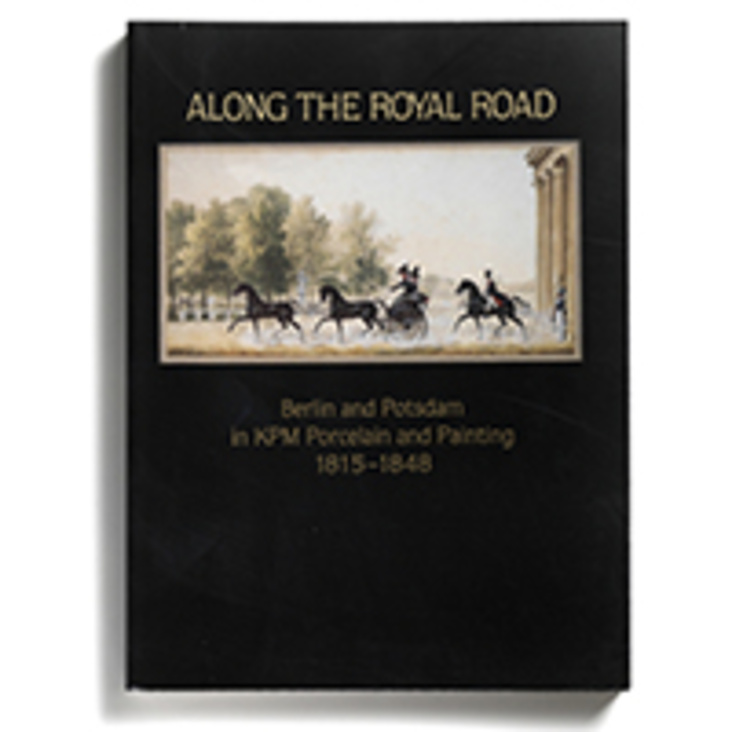Bard Graduate Center publishes award-winning exhibition catalogues, books, and journals focusing on scholarship in the decorative arts, design history, and material culture.










38 West 86th St.
New York, NY 10024
212.501.3000
admissions@bgc.bard.edu
18 West 86th St.
New York, NY 10024
212.501.3023
gallery@bgc.bard.edu
BGC Gallery is currently closed.
38 West 86th St.
New York, NY 10024
212.501.3000
admissions@bgc.bard.edu
18 West 86th St.
New York, NY 10024
212.501.3023
gallery@bgc.bard.edu
BGC Gallery is currently closed.
The catalogue of the inaugural exhibition of the Bard Graduate Center, Along the Royal Road, presents the topographical porcelain produced in the post-Napoleonic heyday of the Royal Prussian Porcelain Manufactory (KPM). Architecture, landscape design and the decorative arts were closely aligned during this period of European royal porcelain history. Great technical strides were made by the Berlin manufactory particularly in their range of colors, at the same time as a school of topographical imagery specialists formed, most notably Carl Daniel Freydanck. The changing urban landscape of Berlin and Potsdam resulting from the collaboration of the architect Karl Friedrich Schinkel and the landscape designer Peter Joseph Lenné, provided inspiration to the KPM topographical painters. The new vision of the landscape was quickly disseminated through the escalation of diplomatic gifts of KPM porcelain ranging from large banquet services to porcelain eggs distributed after Easter each year.




38 West 86th St.
New York, NY 10024
212.501.3000
admissions@bgc.bard.edu
18 West 86th St.
New York, NY 10024
212.501.3023
gallery@bgc.bard.edu
BGC Gallery is currently closed.
